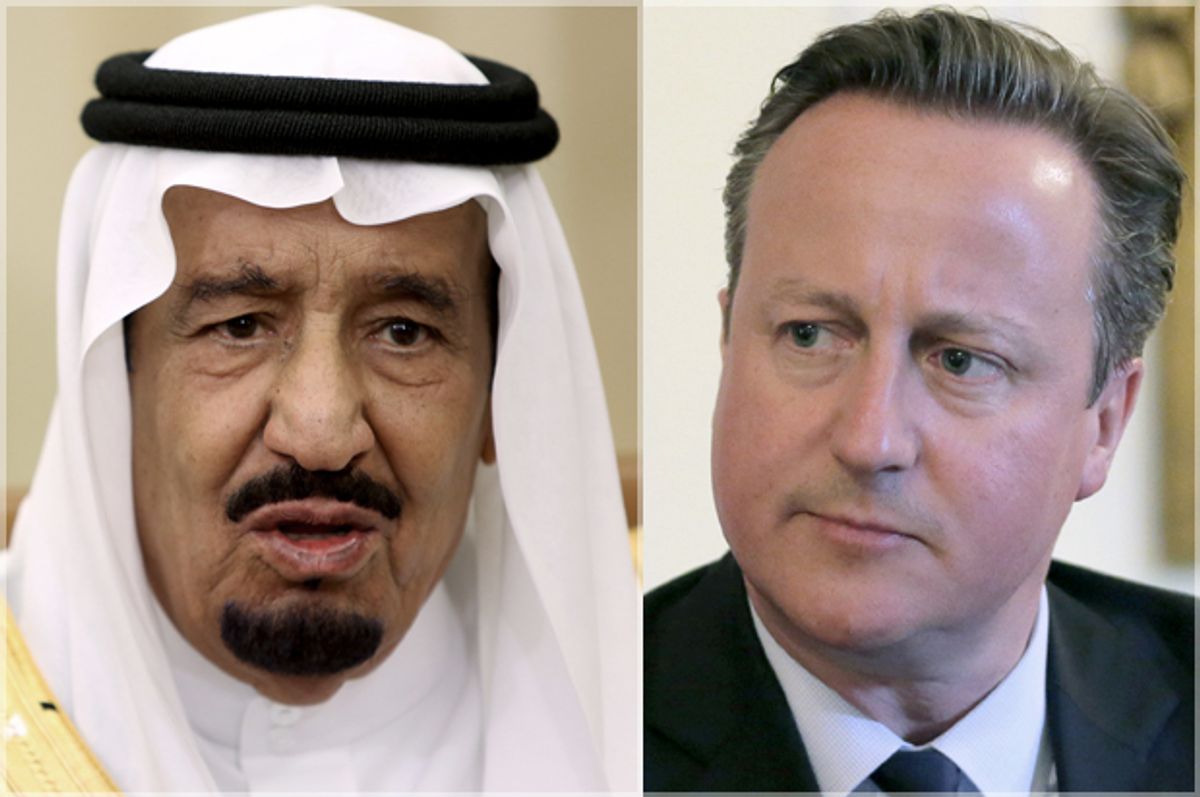"My life is in danger," read an anonymous message. "No meeting, ever."
"Why are you doing this?" a German newspaper asked.
"I want to make these crimes public," the whistleblower wrote.
An enormous cache of documents was just released, exposing how political and economic elites from around the planet are stashing their money in secretive tax havens.
The Panama Papers is one of the biggest leaks in history. Substantially larger than WikiLeaks' 2010 release of U.S. diplomatic cables or Edward Snowden's 2013 release of NSA files, the leak consists of 11.5m documents from the world's fourth-largest offshore law firm, Mossack Fonseca. At a massive 2.6 terabytes in size, the Panama Papers reveal information about 214,000 companies.
An anonymous source leaked the trove to the German newspaper Süddeutsche Zeitung. The publication subsequently shared these files with the International Consortium of Investigative Journalists, which subsequently collaborated with news outlets worldwide.
In what is being called "the largest cross-border media collaboration ever undertaken," at least 370 journalists working for more than 100 media organizations in 80 countries sifted for over a year through the documents, which show just how widespread corruption is throughout the world.
Among those implicated in the scandal are arms traders, human traffickers, drug dealers, con artists and 143 politicians — a veritable Who's Who of global leaders, including 12 current or former heads of state, along with their families and friends.
Many Western media reports on the Panama Papers framed the story around Russian President Vladimir Putin, whose close friends are involved in the corruption, but he is just one small part of the much larger scandal.
King Salman of Saudi Arabia and Petro Poroshenko, president of Ukraine, both of whom are close Western allies, are directly implicated in the corruption.
A slew of other leaders are involved, including Nawaz Sharif, the prime minister of Pakistan; Ayad Allawi, the ex-interim prime minister and former vice-president of Iraq; Sigmundur Davíð Gunnlaugsson, the prime minister of Iceland; Alaa Mubarak, the son of Egypt's former Western-backed dictator; and the children of Ilham Aliyev, the president of Azerbaijan.
Joining them are a key member of the ethics committee of international soccer association FIFA, family members of Syrian President Bashar al-Assad and even the son of former U.N. Secretary General Kofi Annan.
British lawmakers and the father of U.K. Prime Minister David Cameron are also implicated, along with donors to political parties. So too are the families of members of China's ruling body, the politburo.
Mossack Fonseca is based in Panama, but operates globally. It has at least 600 employees working in 42 countries. Its leaked records show dealings with 14,000 clients, and it is a registered agent for more than 200,000 companies connected to 200 countries.
The company is one of the top creators of shell companies, institutions that allow corporations to make transactions without having to claim ownership of assets.
The tax havens the Panamanian law firm operates in include the British Virgin Islands, where approximately half of the corporations are registered, along with Switzerland, Cyprus, Hong Kong, Nevada and others. More than half of the corporations involved are registered in British-administered tax havens.
Major banks have pushed hard for the creation of these opaque companies, the Panama Papers reveal. Economic and political elites collaborated in order to keep the corruption as difficult as possible to trace.
Even more shocking in the documents is the revelation that, in some cases, fixers and middlemen tried to protect themselves and their clients by not only hiding questionable transactions, but also by backdating and even destroying documents.
Nearly 40 years of records are included in the release, from the late 1970s through the end of 2015.
Mossack Fonseca firmly denies that it has been involved in any illegal activity, and refuses to comment on the cases, citing client confidentiality. Use of offshore tax havens are in some countries perfectly legal. In others, it may be in a murky legal gray area for elites to hide their wealth there.
"Most of the services the offshore industry provides can be used for legal purpose and are by law-abiding customers," the International Consortium of Investigative Journalists explained. "But the documents show that banks, law firms and other offshore players often fail to follow legal requirements to make sure clients are not involved in criminal enterprises, tax dodging or political corruption."
This is actually not the first time Mossack Fonseca has been exposed. Investigative journalist Ken Silverstein released a report in December 2014 detailing how the law firm works with oligarchs, money launderers and dictators. A year and a half later, however, the release of a gargantuan cache of the company's records show just how far this network of corruption spreads around the globe.
The release of the Panama Papers comes mere days after the revelation of another scandal involving the shadowy company Unaoil. An explosive investigation found that the Monaco-based company exploits the widespread corruption in the Global South, charging multinational corporations multi-million dollar fees and then bribing government officials in oil-rich countries in order to get good deals for these companies.
In the process, the little-known firm fuels inequality and helps destabilize natural resource-rich conflict areas in these countries, some of which are also implicated in the Panama Papers scandal.
Both leaks shine further light on the international schemes of economic and political elites.

Shares